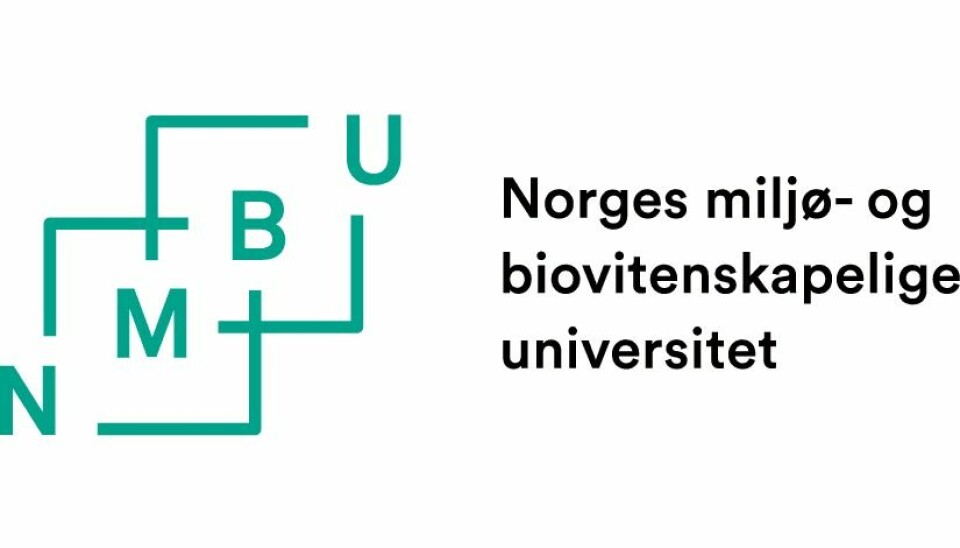Ledig stilling ved NMBU
PhD scholarship within comparative genomics and genome regulation
Deadline: 05.05.2019
About the position
Department of Animal- and Aquacultural Sciences (IHA), Faculty of Biosciences (BIOVIT), at the Norwegian University of Life Sciences (NMBU) is inviting applications for a 3-year PhD position within comparative genomics to study the role of transposable elements (TEs) as agents of chromosome evolution genome regulation in salmonid fishes.

The successful candidate will be associated with the TRANSPOSE project, funded by the FRIPRO Toppforsk program in the Research Council of Norway. The main objective of this project is to understand the role of mobile transposable elements (TEs) in shaping evolution of new genome structure and function in salmonid fishes.
The successful candidate will join CIGENE, a multidisciplinary genome biology research group possessing expertise in genetics, evolutionary and comparative genomics, bioinformatics and systems biology. Located within the Department of Animal- and Aquacultural Sciences, this group includes 2 full-time professors, 2 associate professors, 1 center coordinator, 11 researchers, 4 postdocs, 8 PhD students and 10 research technicians.
CIGENE has a strong aqua- and agriresearch profile, with key strengths in the application of ‘omics’ data to understand the genetic architecture of complex traits. The group wishes to use functional genomics technologies, including gene editing, to better understand the biology underlying specific genotype-phenotype associations. CIGENE has excellent wet and dry lab facilities for automated high-throughput omics, and bioinformatics.
Main tasks
The main tasks will be to perform comparative analyses of salmonid genomes (and their outgroups), both at the genome sequence and regulatory levels (e.g. histone ChIP-Seq, RNA-Seq).
The successful candidate is expected to enter a plan for the progress of the work towards a PhD degree during the first months of their appointment, and have responsibility to complete their doctorate within the PhD scholarship period.
Qualifications and skills
The successful applicant must meet the conditions defined for admission to a PhD programme at NMBU. The applicant must have an academically relevant education corresponding to a five-year Norwegian degree programme, where 120 credits are at master's degree level. The applicant must have a documented strong academic background from previous studies, and be able to document proficiency in both written and oral English. For more detailed information on the admission criteria please see the PhD Regulations and the relevant PhD programme description.The applicant must document expertise and interest in the research subject.
Required qualifications and competence:
- Master's degree in genomics, bioinformatics, statistical genomics, evolutionary biology or similar
- Experience with analyses of genomics/transcriptomics/ epigenomics data
- Fluency in at least one programming language (R, python, perl, etc.)
Desired qualifications and competence:
- Strong statistical skillset
- Experience with comparative analyses of sequence data (genomics) or functional omics data (RNA/epigenome) across species
- Experience with de novo assembly of genome sequencing data from long read data (e.g. nanopore)
Required personal skills:
- Ability for independent work displaying initiative and careful creative thought
- Analytical and academic approach to research questions
- Good collaborative/social skills
- Proficiency in English, both written and spoken
Remuneration and information
The position is placed in government pay scale position code 1017 PhD Fellow, wage framework 20, salary grade 51-62. PhD Fellows are normally placed in pay grade 51 (NOK 449 400) on the Norwegian Government salary scale upon employment depending on qualifications. The position follows ordinary meriting regulations.
Employment is conducted according to national guidelines for University and Technical College PhD scholars.
For further information, please contact:
- Prof. Sigbjørn Lien by email: sigbjorn.lien@nmbu.no, or phone +47 9135-3715; or
- Dr. Simen Rød Sandve by email: simen.sandve@nmbu.no, or phone +47 6723-2711
Information for PhD applicants and general information to applicants
Application
To apply online for this vacancy, please click on the 'Apply for this job' button above. This will route you to the University's Web Recruitment System, where you will need to register an account (if you have not already) and log in before completing the online application form.
Application deadline: May 5th 2019
Applications should include (electronically) a letter of intent, curriculum vitae, full publication list, copies of degree certificates and transcripts of academic records (all certified), and a list of two persons who may act as references (with phone numbers and e-mail addresses). Publications should be included electronically within the application deadline. The relevant NMBU Department may require further documentation, e.g. proof of English proficiency.
If it is difficult to judge the applicant’s contribution for publications with multiple authors, a short description of the applicant’s contribution must be included.






